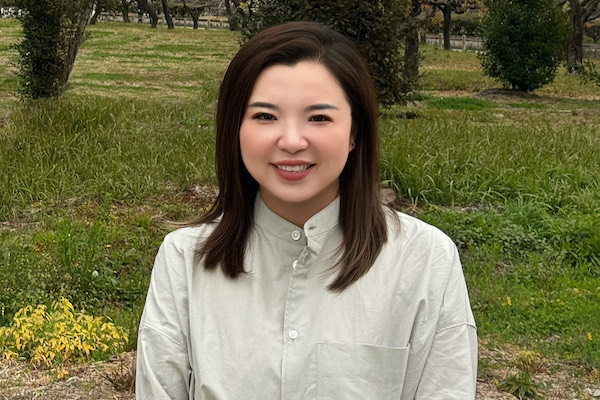
Sherry (Xue) Gao, Presidential Penn Compact Associate Professor in Chemical and Biomolecular Engineering (CBE), always knew she had a future in the lab. “I grew up in China, and when I was little, maybe six or seven,” she recalls, “my teacher asked me, ‘What do you want to be when you grow up?’ I said, ‘I want to be a scientist!’”
Neither of her parents had studied beyond high school; when Gao finished her training as a chemical engineer, she became the first person in her family to graduate from college. “One of my greatest motivations is to help first-generation college students,” Gao says.
Now, as the newest faculty member in CBE, Gao is prepared to do just that: support the next generation of chemical engineers, while also conducting groundbreaking research in the development of small molecules to edit genes, pushing the boundaries of precision medicine.
The Presidential Penn Compact Professorships were created by former Penn President Amy Gutmann specifically to recruit and support faculty like Gao: transformative leaders working at the intersection of multiple fields with “a yen for collaboration,” as Gutmann told the Penn Gazette in 2021.
Gao joins Penn Engineering from Rice University, where she collected numerous accolades, including the 2024 BMES-CMBE Rising Star Award, a 2022 NSF CAREER Award, the 2022 Outstanding Young Faculty at Rice School of Engineering Award and the 2020 NIH MIRA R35 Award.
As a member of the Center for Precision Engineering for Health (CPE4H), Gao will partner with colleagues from across the School to develop technologies that bridge disciplines, all in the interest of advancing health care. “We are very excited to have Sherry as a new member of the Center,” says Daniel Hammer, Alfred G. and Meta A. Ennis Professor and inaugural Director of CPE4H. “Gene editing is an important new tool that can precisely alter cell behavior by deleting or redirecting cell pathways, as well as enhancing and suppressing gene expression. She will have significant interactions with other members of the Center, such as Mike Mitchell and myself, as well as the broader Penn community, especially with the CAR therapists.”
One of Gao’s primary goals is to make gene-editing tools more accurate. As Gao points out, CRISPR, the revolutionary technology developed by Nobel-prize winners Jennifer Doudna and Emmanuelle Charpentier, doesn’t always work perfectly. “The tool goes in, fixes a mutation, but we also observe a lot of ‘off-targets,’” Gao says. “So it’s not just hitting the target letters in our genetic code, it’s sometimes editing other places. You could cure one genetic disease by using the CRISPR tools, but then the off-targets could cause dozens of other problems.”
More generally, Gao is fascinated by enzymes, the class of molecules to which CRISPR belongs, which enable chemical reactions by lowering the activation energy required for a reaction to take place. “Enzymes typically catalyze molecules in a very precise fashion,” says Gao. “That’s sort of my passion: to look into how nature makes some molecules so accurate, and how we as humans and engineers can learn from that.”
This fall, Gao will teach a course on genetic engineering, which will be open to both graduate and undergraduate students. She is also developing a course within CBE to focus on biomolecules, with a particular interest in enzymes.
Two Penn graduate students have already joined Gao’s lab, and she welcomes undergraduates to work with her. “I hope they can be motivated by me to achieve the best of themselves,” Gao says. Throughout her academic career, as a graduate student, then postdoctoral fellow and now faculty member, she has mentored dozens of undergraduate researchers, with many of them co-authoring peer-reviewed articles with her.
“I’m also a very strong supporter of female students,” says Gao, who has two young children. “My professional development completely overlapped with my family, and I want to help my students succeed academically and in other professional fields as well.”
To learn more about Sherry (Xue) Gao and her research, please visit the Gao Lab’s website. In fall 2024, Gao is teaching Genome Editing and Engineering (CBE 5270). Postdoctoral researchers, prospective doctoral students and undergraduates interested in joining the Gao Lab can learn more at Gao’s website.
Correction: the caption for this story originally misstated Professor Gao’s department; she is part of Chemical and Biomolecular Engineering (CBE), not Bioengineering (BE).
